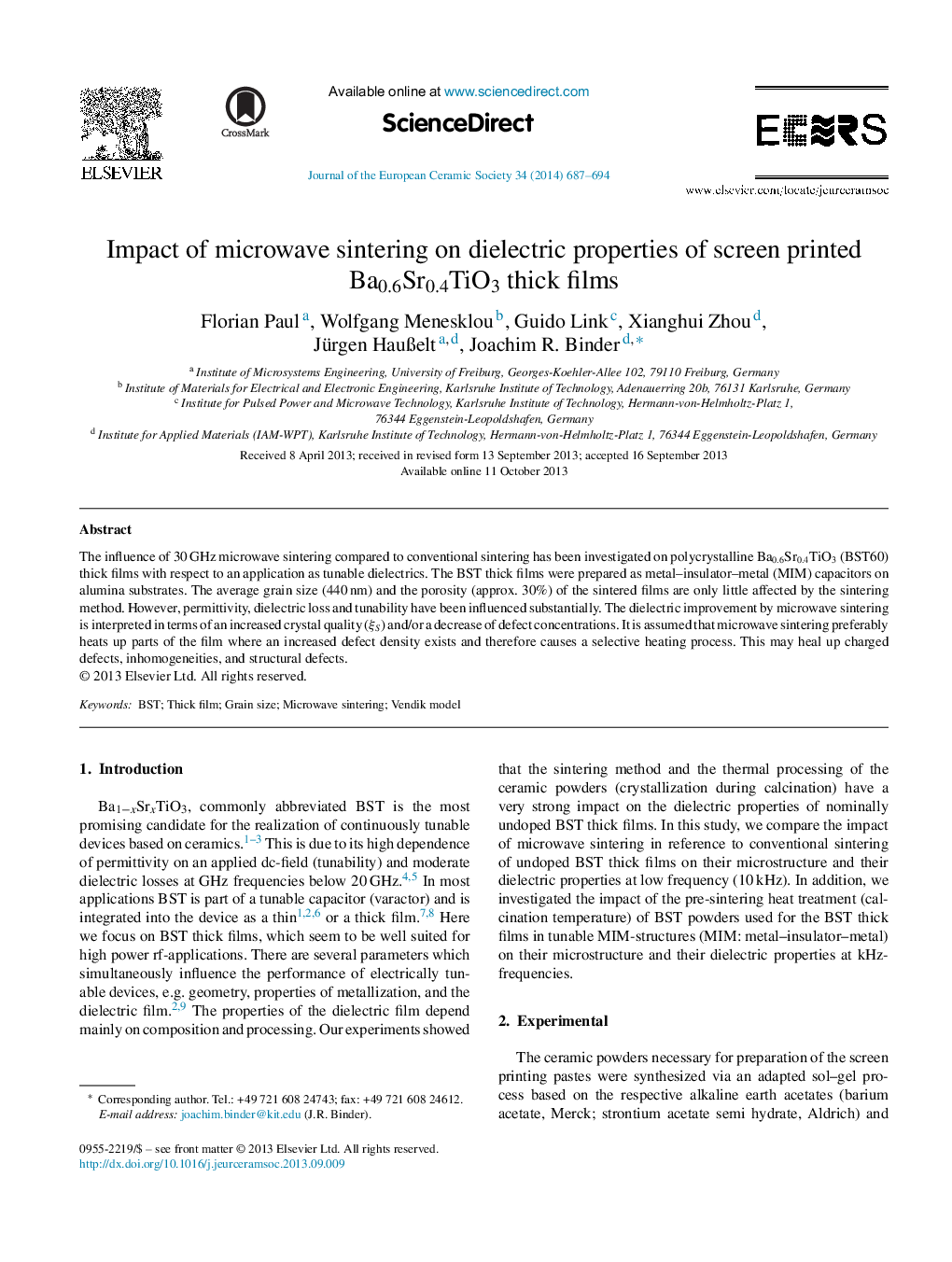| Article ID | Journal | Published Year | Pages | File Type |
|---|---|---|---|---|
| 10629530 | Journal of the European Ceramic Society | 2014 | 8 Pages |
Abstract
The influence of 30 GHz microwave sintering compared to conventional sintering has been investigated on polycrystalline Ba0.6Sr0.4TiO3 (BST60) thick films with respect to an application as tunable dielectrics. The BST thick films were prepared as metal-insulator-metal (MIM) capacitors on alumina substrates. The average grain size (440 nm) and the porosity (approx. 30%) of the sintered films are only little affected by the sintering method. However, permittivity, dielectric loss and tunability have been influenced substantially. The dielectric improvement by microwave sintering is interpreted in terms of an increased crystal quality (ξS) and/or a decrease of defect concentrations. It is assumed that microwave sintering preferably heats up parts of the film where an increased defect density exists and therefore causes a selective heating process. This may heal up charged defects, inhomogeneities, and structural defects.
Related Topics
Physical Sciences and Engineering
Materials Science
Ceramics and Composites
Authors
Florian Paul, Wolfgang Menesklou, Guido Link, Xianghui Zhou, Jürgen HauÃelt, Joachim R. Binder,
